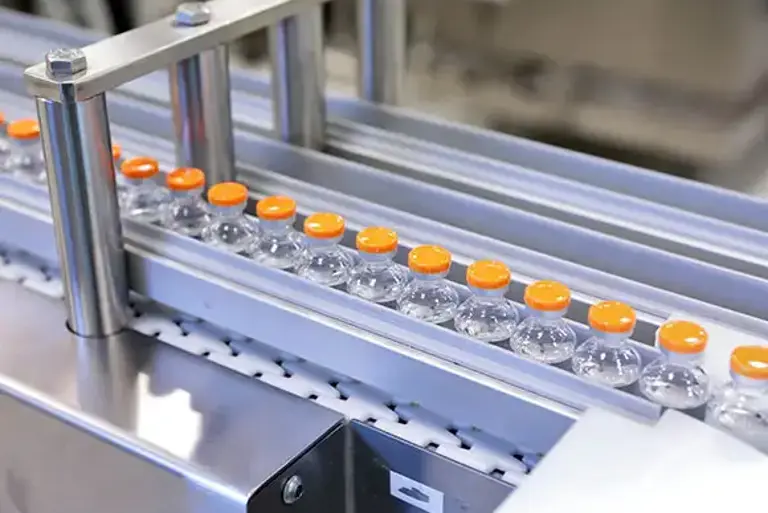Ensuring value, access & uptake of innovative medicines & vaccines, now & in the future

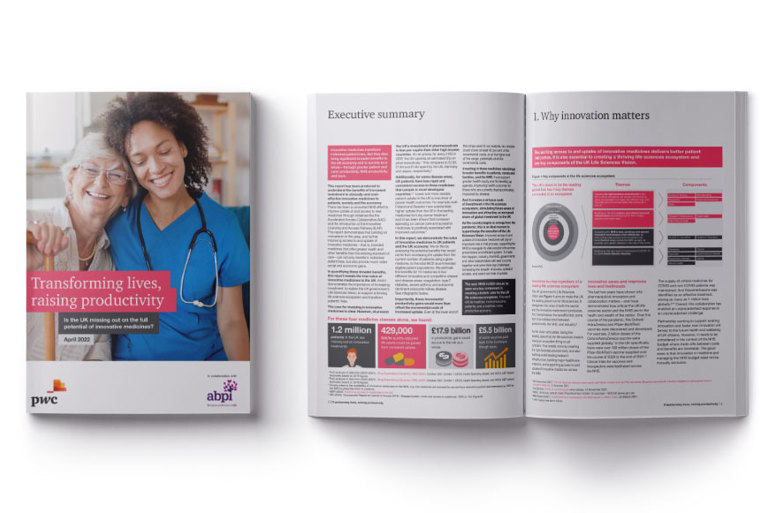
A new report from PwC for the ABPI shows that, while the NHS has made progress in recent years, access to medicines in the UK remains poor especially in comparison to other developed countries.

Medicines bring huge value to NHS patients. The development of new medicines is uncertain, costly, and involves significant rates of failure. The pharmaceutical industry spends $160 billion per year on research and development.
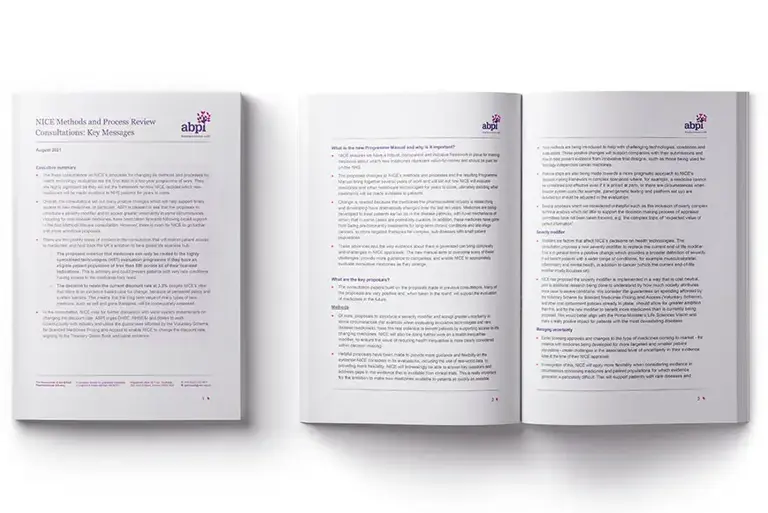
NICE continues to evolve its methods and processes for evaluating new medicines. Making changes that support patient access remains a priority for the ABPI.
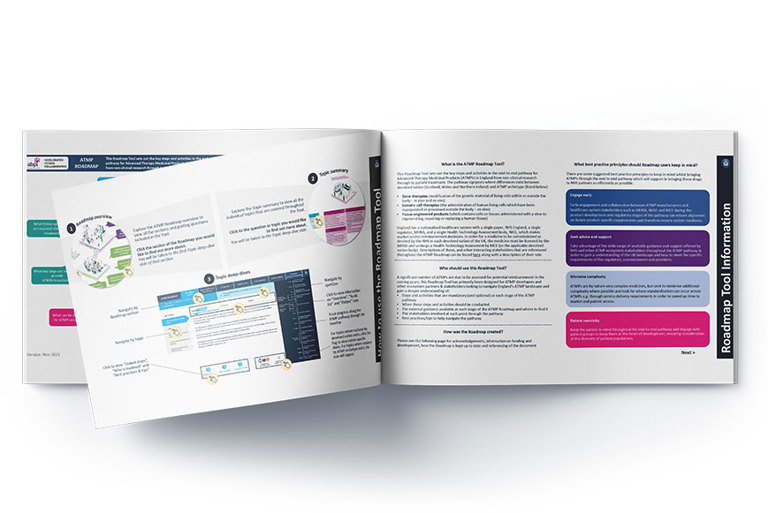
Advanced Therapy Medicinal Products (ATMPs) are recognised for their potential to revolutionise the way diseases are treated and to transform patient outcomes.
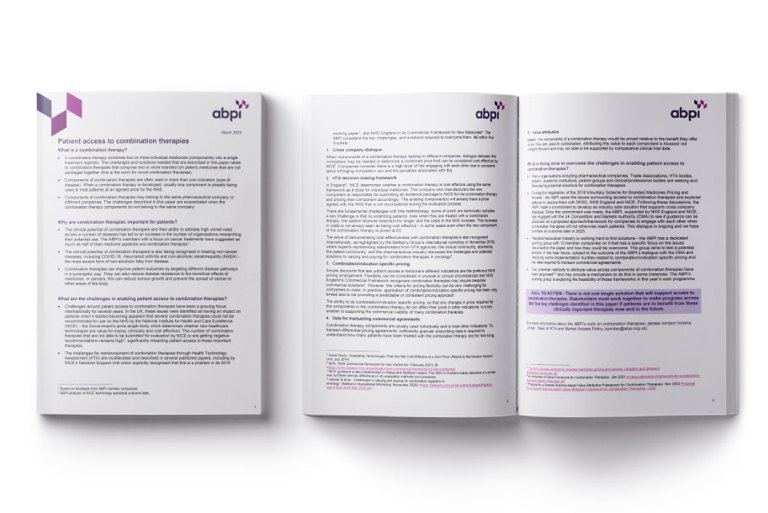
A combination therapy combines two or more individual medicines (components) into a single treatment regimen.
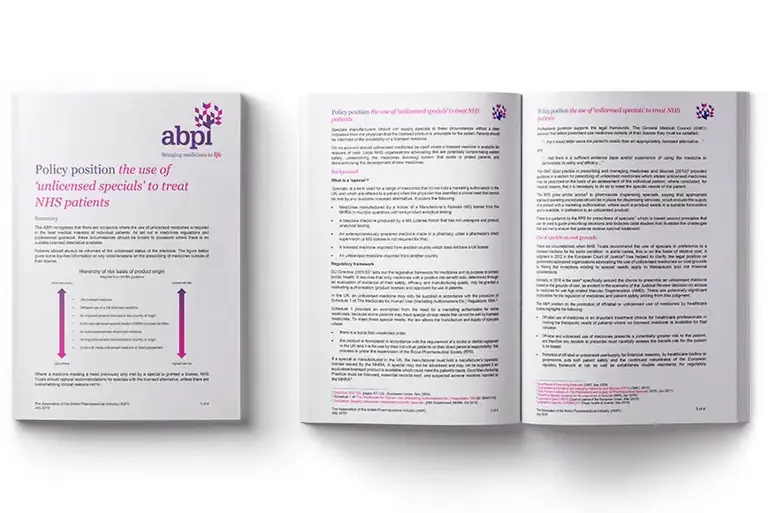
Prescription medicines are important therapeutic options which can be prescribed in order to prevent, treat or cure diseases and symptoms.
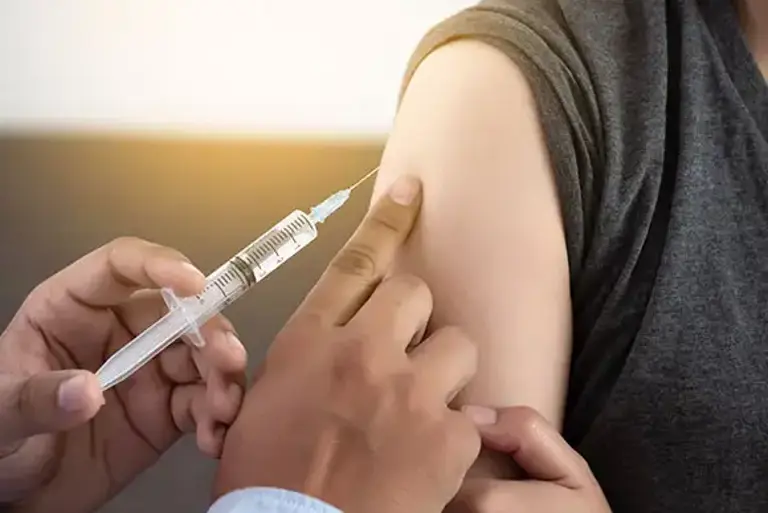
Every year, 2 – 3 million lives are saved across the world because of immunisation and only clean water rivals vaccines at reducing infectious diseases and deaths.


